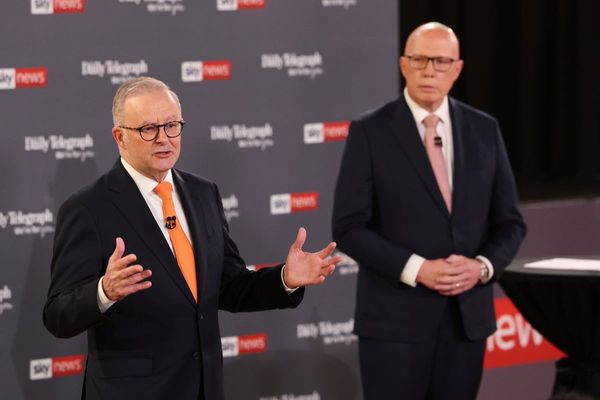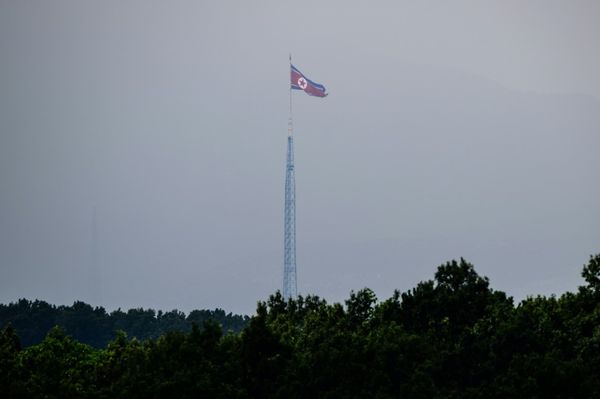
Disinformation and conspiracy theories about low traffic neighbourhoods (LTNs) soared last year amid Government opposition to the schemes, according to a study.
Cross-party think tank Demos, which conducted the analysis, claimed there is a "worsening democratic chasm between councils and communities".
LTNs, which involve preventing vehicles from using some residential streets, were deployed by many councils during coronavirus lockdowns in 2020 in a bid to make it easier for people to walk and cycle.
Opponents raised concerns about the impact on drivers.
The Demos report found the proportion of the most popular social media posts on LTNs it classed as disinformation rose from 5% in 2022 to 28% in 2023.
The increase came in the year Prime Minister Rishi Sunak attacked councils for the introduction of the road schemes, which was a policy the Government had previously championed.
Mr Sunak called LTNs examples of "hare-brained schemes" in an interview with The Sun in September 2023.
Examples of social media posts about LTNs which were classed as disinformation include those which:
- Referred to 15-minute cities, which some people believe involve surveillance to limit travel.
- Approved of vandalism.
- Mentioned "authoritarian/totalitarian political regimes".
Demos researchers also noted that many councils failed to properly engage and consult communities before implementing LTNs.
Hannah Perry, a lead researcher at Demos, said: "An instruction to act 'swiftly', combined with historic funding constraints, led to serious shortcomings in the way the councils engaged citizens in LTN implementation.
"However, instead of working to bring a sense of calm, the Government performed a screeching U-turn, in both policy and rhetoric, and ultimately fed the public backlash.
"Our analysis shows how this pivot coincided with the spike in LTN-related disinformation.
"It is absolutely essential that lessons are learned and that we radically transform how democracy takes place locally.
"There is a worsening democratic chasm between councils and communities.
"We are calling for a new layer of participation so that our local politicians can foster constructive relationships with citizens, working in partnership with them, not against them."
Jonathan Heawood, executive director of charity the Public Interest News Foundation (PINF), which partnered with Demos in producing the report, said: "Local journalists are keen to cover important issues such as LTNs, but we've found that they're being held back by public abuse, online harassment and lack of investment in original reporting.
"Whether they are for or against LTNs, the public are wary of journalism that sensationalises their arguments to create clickbait or treats them as conspiracy theorists.
"By contrast, they respect journalists who are rooted in the communities they serve, and who strive to present a rounded and objective view of the complex LTN debate."
The report's recommendations involve creating a new anti-disinformation standard in public life, creating a set of principles for councils in a bid to "restore trust in local democracy", and a Government funding package of £50 million per year supporting local journalism.
Meanwhile, separate research carried out as part of an investigation for Channel 4's Dispatches programme found London councils issued a total of at least £118 million in fines for vehicles entering LTNs between January 2023 and March 2024.
Researchers sent Freedom of Information requests to all 33 councils in the capital.
Of the 29 which responded, 14 confirmed they had issued penalty charge notices for the offence in that period.
The Local Government Association said: "Councils want to take a balanced approach to ensuring that motor traffic keeps moving, whist protecting other road users so that everyone can benefit from safer streets.
"Any surplus income from (traffic) fines has to be spent on transport improvements by law, such as providing vital bus services or highway improvement, including fixing potholes."
A Department for Transport spokesperson said: "Traffic schemes must work for everyone in the area and should have local engagement and community buy-in before being implemented, which has not been the case for a number of LTNs.
"Through our Plan for Drivers, we're strengthening statutory guidance to ensure councils have the support of local residents, businesses and emergency services before implementing any new LTN schemes."







